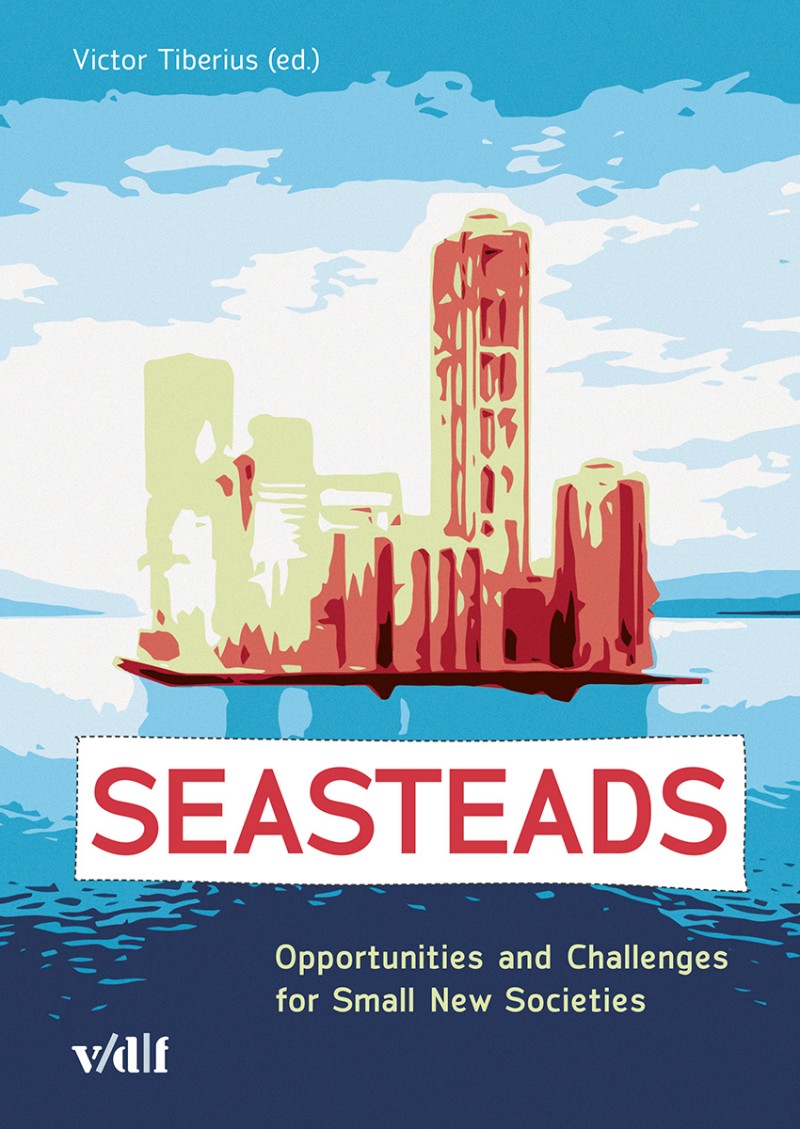Seasteads
- Opportunities and Challenges for Small New Societies
Globalisation, Artificial Settlements, Floating Cities, Learning Communities, Mobile Technology
Seasteads – artificial settlements on the open sea – represent a near-future chance for multiple societal restarts. Where nation states suffer from ineffectiveness and inefficiency, both politically and economically, and cannot be changed due to path-dependency and rigidity, the open sea is a clean slate. Here, we can test new ways of doing things differently.
This book discusses the opportunities and challenges of seasteads. Its focus is on socio-philosophical, political, economic, and legal aspects of founding new small societies of pro-active and productive individuals and groups. An explorative exercise, this book presents paradigmatic ideas and suggestions for partial aspects of seasteads.
Contributions by: Rashid L. Bashshur, Lucinda Becker, Tom W. Bell, Walter E. Block, Bettina Boschen, Matthew R. Dunn, Hugo Godschalk, Catherine Holst, Colin P.A. Jones, Lee Sing Kong, Roderick T. Long, Aroon P. Manoharan, Mark Moore, Sean Mossey, David B. Resnik, Rahim Taghizadegan, Victor Tiberius
"Neu soll fast alles sein auf den künstlichen Inseln. Insbesondere
möchten Tiberius und seine Mitstreiter kleine, überblickbare
Gesellschaften schaffen, die sich für Experimente eignen. Die Mitglieder
wären sich einig über die Wertvorstellungen und ihre persönlichen
Ziele. Anders als in den grossen Demokratien mit ihrer gemischten
Bevölkerung wären sie agil und fortschrittlich. Alternative
Wirtschaftsmodelle wären möglich, wobei die niemals realisierten
Vorstellungen von Silvio Gesell aus der ersten Hälfte des letzten
Jahrhunderts zu Freigeld und Freiwirtschaft doch noch eine Zukunft haben
sollen.
Eine neue Art von Gerichtsjustiz wird ebenfalls diskutiert.
Sogar für das Heiraten sollen neue Modelle entwickelt werden, mit
Informatikverfahren wie beim elektronischen Zahlungsverkehr würde
geprüft, wer mit wem verheiratet ist und ob er oder sie immer noch
verheiratet ist. Victor Tiberius und seine Mitautoren und Mitautorinnen
glauben nicht an die Zukunft der heutigen Staats- und
Gesellschaftsformen, sie wollen Insellösungen, auch wenn es künstliche
Inseln sind. Ganz wichtig: Die schwimmenden Städte sind keine Staaten,
sondern Privatunternehmen, und jeder kann die Adresse und seine
Inselnachbarn selber wählen. Dass dabei ganz verschiedene Gruppen, jede
auf ihrer Insel, entstehen, gehört zum Konzept."
(Walter Jäggi, Tages-Anzeiger, 12.4.2017)
Ganzer Artikel »
"Den
Autoren gelingt nicht nur eine gute Zusammenschau, sondern sie
erzeugen, allen Herausforderungen zum Trotz, eine gewisse
Aufbruchsstimmung. Dies auch deshalb, weil klar wird, wie fundiert und
fortgeschritten die Überlegungen tatsächlich schon sind - eine Utopie
auf dem Sprung in die Realität?"
(Ralph Malisch, Smart Investor 5 2017, Mai 2017, S. 16f)
Ganzer Artikel »
Zum Kapitel "Epistocracy on Seasteds?":
"Contemporary governance relies extensively and increasingly on academic expertise. This expertise dependency is intimately related to the technological and regulatory complexity and level of specialization of modern society. Expertization is also spurred by elites' social and political interests and the force of Enlightenment arguments for knowledge-based policy-making. Existing diagnoses of a rising epistocracy – a rule of experts – present it as either a tragedy for democracy or embrace it as a way of ensuring rational decisions and policies. A more balanced assessment should recognize that the normative legitimacy of any political rule – a rule in which the knowledgeable are given considerable scope and privileges included – depends on both procedures and outcomes. The chapter takes as its point of departure the phenomenon of seasteads, and the possibility of making expert arrangements in seasteads that are both democratically authorized and accountable, and likely to contribute to increased quality in decision- and policy-making. Among the wider universe of epistemic criteria, this discussion focuses on the prerequisites in seasteads for institutionalizing an investigatory ethos, cognitive pluralism, and epistemic modesty. The chapter concludes that seasteads offer quite some promise given a genuine interest in developing and experimenting with epistocratic, but legitimate, forms of governance. Yet, a set of demanding cognitive, motivational and institutional conditions must be in place, or seasteads' expert arrangements stand the chance of scoring lower on both democratic and epistemic parameters than mainland arrangements."(UiO, Arena Centre for European Studies, University of Norway, 9.8.2017)
- Auflage: 1., 2017
- Seiten: 244 Seiten
- Abbildungen: Abbildungen und Tabellen
- Format in cm: 17,0 x 24,0
- Einbandart: ePub/PDF
- ISBN: 978-3-7281-3826-2 (ePub) und 978-3-7281-3822-4 (PDF)
- DOI: 10.3218/3826-2 und 10.3218/3822-4
- Sprache: Englisch
- Publikationsart: Sammelband
- Lieferstatus: lieferbar
Zusatzangebote
| Name | Dateityp | Zugriff |
| Inhaltsverzeichnis / Table of Contents | PDF-Dokument | |
| Leseprobe / Extract | PDF-Dokument |
eBook Anbieter
Preis je nach Anbieter, erhältlich u.a. bei:
 |
Buchhaus.ch (Lüthy, Balmer, Stocker) | zum Anbieter |
 |
eBook.de | zum Anbieter |
 |
Google Play | zum Anbieter |
 |
Amazon Kindle | zum Anbieter |
 |
iTunes | zum Anbieter |
 |
Ciando | zum Anbieter |



